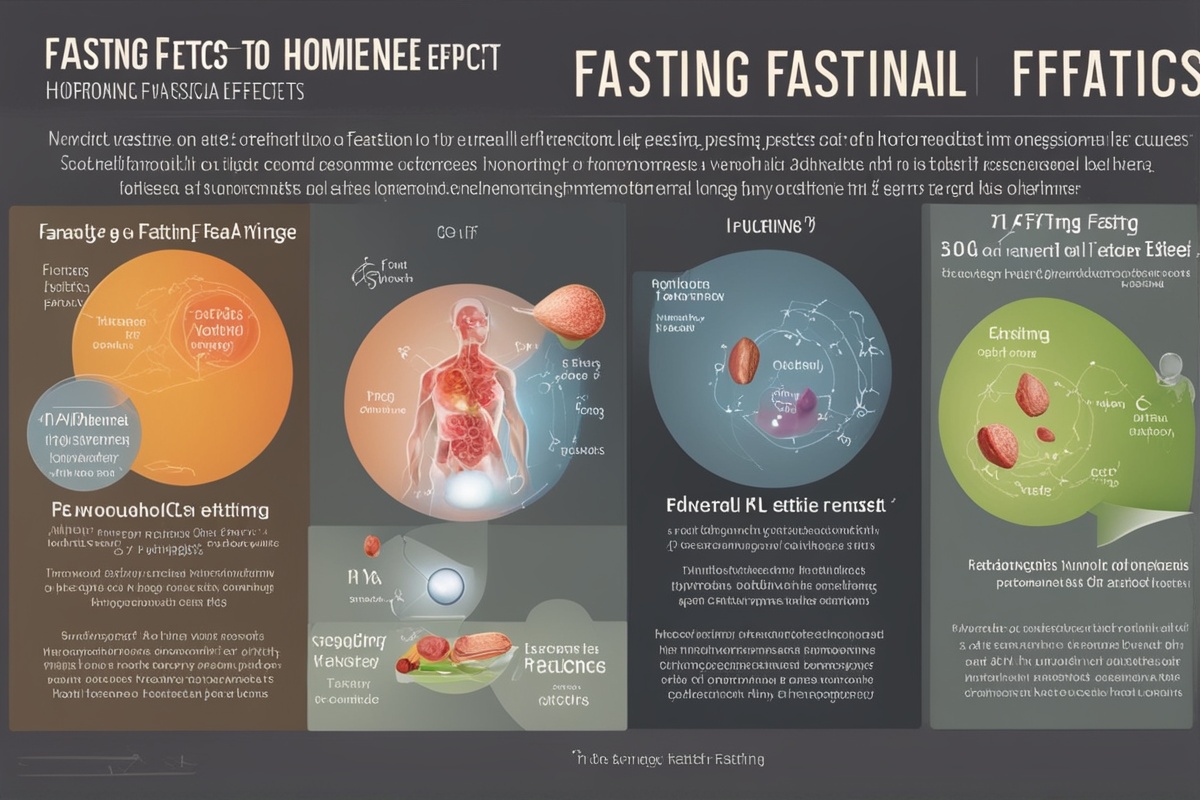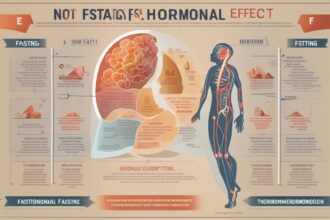Intermittent fasting (IF) has gained significant attention in recent years as a powerful tool for weight loss, improved metabolism, and overall health. However, one of its lesser-discussed benefits lies in its potential to support hormonal balance. Hormones play a critical role in regulating nearly every bodily function, from metabolism and mood to reproduction and energy levels. When hormones are out of balance, it can lead to a range of issues, including fatigue, weight gain, and mood swings. In this article, we’ll explore how balancing hormones through intermittent fasting can be an effective strategy for improving health and well-being.
What Is Intermittent Fasting and How Does It Work?
Intermittent fasting is not a diet but rather an eating pattern that alternates between periods of eating and fasting. Popular methods include the 16/8 approach (fasting for 16 hours and eating during an 8-hour window) and the 5:2 method (eating normally for five days and restricting calories on two non-consecutive days). During fasting periods, the body undergoes several physiological changes, including shifts in hormone levels, which can promote better hormonal regulation.
Fasting triggers a reduction in insulin levels, allowing the body to access stored fat for energy. It also influences other hormones like human growth hormone (HGH), cortisol, and ghrelin (the hunger hormone). By creating a structured eating schedule, intermittent fasting can help stabilize these hormones, potentially reducing the risk of imbalances that contribute to conditions like insulin resistance or thyroid dysfunction. For more on how fasting impacts metabolism, check out our post on Understanding Metabolic Health.
The Connection Between Hormones and Intermittent Fasting
Hormones act as chemical messengers in the body, and even slight imbalances can disrupt overall health. Intermittent fasting impacts several key hormones, including insulin, cortisol, and sex hormones like estrogen and testosterone. For instance, fasting can improve insulin sensitivity, which is crucial for managing blood sugar levels and preventing conditions like type 2 diabetes. Lower insulin levels during fasting also encourage fat-burning, which can indirectly support hormonal balance by reducing excess body fat—a known contributor to estrogen dominance.
Additionally, intermittent fasting may reduce inflammation, a common trigger for hormonal disruptions. By giving the digestive system a break, fasting allows the body to focus on repair and recovery processes, which can positively affect stress hormones like cortisol. If you’re curious about stress management, read our guide on Natural Ways to Lower Cortisol Levels.
Balancing Hormones Through Intermittent Fasting: Key Benefits
Balancing hormones through intermittent fasting offers a variety of benefits for both men and women. One of the most significant advantages is its effect on insulin regulation. High insulin levels, often caused by frequent eating or high sugar intake, can lead to weight gain and hormonal issues like polycystic ovary syndrome (PCOS) in women. Fasting helps lower insulin levels, promoting better hormonal harmony.
Another benefit is the potential improvement in reproductive hormones. For women, intermittent fasting may help regulate menstrual cycles by reducing insulin resistance and inflammation, both of which can disrupt ovulation. For men, fasting has been linked to increased testosterone levels, especially when combined with resistance training. Furthermore, fasting can enhance the release of human growth hormone (HGH), which supports muscle growth, fat loss, and cellular repair—all of which contribute to hormonal health.
Potential Risks and Considerations for Hormonal Balance
While intermittent fasting can be a powerful tool for balancing hormones, it’s not suitable for everyone. For some individuals, especially women in their reproductive years, prolonged fasting may increase stress hormones like cortisol, potentially disrupting menstrual cycles or exacerbating conditions like hypothyroidism. It’s essential to approach fasting with caution and tailor it to your unique needs.
Pregnant or breastfeeding women, individuals with a history of eating disorders, or those with certain medical conditions should avoid intermittent fasting unless under medical supervision. Listening to your body is key— if fasting leads to fatigue, irritability, or irregular periods, it may be a sign to adjust your approach. For tips on personalized nutrition, see our article on Creating a Balanced Diet for Hormonal Health.
How to Start Intermittent Fasting for Hormonal Balance
If you’re new to intermittent fasting and want to use it for balancing hormones, start slowly to allow your body to adapt. Begin with a 12/12 schedule—fasting for 12 hours overnight and eating during a 12-hour window. Gradually progress to a 16/8 schedule if your body responds well. During eating windows, focus on nutrient-dense foods that support hormonal health, such as healthy fats (avocado, nuts), lean proteins, and fiber-rich vegetables.
Hydration is also critical during fasting periods. Drink plenty of water and consider herbal teas to support detoxification processes. Avoid overeating or consuming processed foods during eating windows, as this can negate the hormonal benefits of fasting. For more meal planning ideas, explore our post on Nutrient-Dense Foods for Hormonal Support.
Combining Intermittent Fasting with Other Hormone-Balancing Strategies
While intermittent fasting can be effective on its own, combining it with other lifestyle changes can amplify its benefits for hormonal balance. Regular exercise, particularly strength training and yoga, can further improve insulin sensitivity and reduce stress hormones. Adequate sleep is another crucial factor—aim for 7–9 hours per night to support hormonal regulation.
Stress management techniques like meditation or deep breathing can also complement fasting by keeping cortisol levels in check. Additionally, consider incorporating supplements like magnesium or omega-3 fatty acids if recommended by a healthcare provider. For a deeper dive into stress and hormones, read our article on The Impact of Stress on Hormonal Imbalance.
Disclaimer: The information provided in this article is for educational purposes only and should not be considered medical advice. Intermittent fasting may not be suitable for everyone, and its effects on hormonal balance can vary based on individual health conditions. Always consult with a healthcare professional or registered dietitian before starting any new dietary or fasting regimen, especially if you have pre-existing medical conditions or are on medication.
References
- Harvard Health Publishing: Intermittent Fasting: Surprising Update
- National Institutes of Health: Effects of Intermittent Fasting on Health, Aging, and Disease
- Mayo Clinic: Intermittent Fasting FAQ
- Endocrine Society: Intermittent Fasting Can Help Manage Metabolic Disease
- Johns Hopkins Medicine: Intermittent Fasting: What Is It, and How Does It Work?
This content is for informational purposes only and not a substitute for professional advice.






